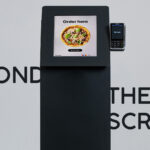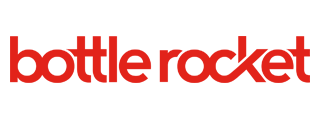Published by
Business Chief sits down with Calvin Carter, CEO of Bottle Rocket to discuss how the technology and software industry is being disrupted by Generation Z.
Mckinsey defines Generation Z as people born from 1995 to 2010. This generation is the first truly digital native generation exposed to the internet, social media and technology from an early age unlike Baby Boomers, Generation X and Millennials who remember a time before the internet was mainstream. Key traits of Generation Z include connectivity, inquisitive, entrepreneurial and brand-consciousness. Currently, Generation Z comprises 32% of the 7.7bn global population (2019).
With this in mind, Business Chief speaks to Calvin Carter, CEO of Bottle Rocket, which provides end-to-end digital transformation services to improve connectivity between businesses and consumers. Carter discusses the changes, challenges and benefits this new generation entering the work environment will bring to the technology and software industry.
What are the key trends and disruptors within your industry at the moment?
Within today’s evolving marketplaces, the brand differentiators that have proved successful in the past are no longer enough to set a company apart. This new era has been dominated by a new type of customer, emerging as a result of the digital literacy that is now fed from Generation Z through to baby boomers and beyond. The connected customer, who interacts with brands through digital means, is a new type of consumer who seeks immediate, frictionless, and personalised experiences. These demands make the connected customer a huge disruptor in any industry, and have spawned a host of trends that companies must pay attention to in order to grow their business in the long-term. Providing a seamless omnichannel experience, investing in digital channels of engagement, and tying such digital transformation strategies to core goals are now the basic expectations for any firm, and those that are achieving harmony between these aspects are becoming disruptors themselves.
How do you feel the industry is changing as a result of Generation Z?
While 40% of baby boomers are considered connected customers, Gen Z stands at 80%, effectively making any brand who wants to work with the generation invest in a brand experience that fits their connected lifestyle. Raised using the internet, Gen Z is placing great pressure on organisations to provide digital experiences that exceed what’s come before. Fundamentally, the way businesses interact with both customers and employees has been transformed in ways that leverage technology. Although deemed a difficult strategy to execute, 67% of consumers say they’ll pay more for a better experience, therefore there are great benefits to be reaped if businesses are willing to adapt.
What challenges do you feel the industry is facing as a result of Generation Z?
If a business is to demonstrate that they are harnessing the changing needs of their customers, they will need to invest in more than simply a digital presence. Yes, today’s Connected Customer wants simple and convenient user experiences but, in order to keep them delighted, businesses need to ensure these experiences are innovative. The resulting challenge is the anticipation of new needs and making them feel that the customer experience was designed just for them. For even the most established or successful businesses, failure to favour change could result in brands joining the 52% of the Fortune 500 that have gone bankrupt since 2000.
What do you feel companies need to do in order to stay ahead of fast evolving trends and new generations such as Generation Z?
Anticipating needs and desires, and bringing them to market before competitors, is the underlying strategy all companies must have in place to maintain momentum and further reach the Generation Z market. With new technologies emerging on a regular basis, digital transformation is racing ahead and, to keep up, businesses need to purposefully blend each experience across digital interfaces to create a holistic journey. In order to provide that seamless customer experience, companies need to acknowledge every touchpoint and link them to flow from one device to another. This ultimately reduces, or even eliminates, the likelihood of Generation Z finding flaws and looking to competitors who fully accommodate their needs.
To better premeditate the next set of needs to emerge, businesses inevitably need contextual data that allows for more personalised features. 53% of consumers are looking forward to artificial intelligence (AI) making brand interactions a better experience, therefore companies need to purposefully harness the technology to achieve meaningful connections with customers. By tracking data analytics and customer pain-points, businesses can build technology-enabled solutions that satisfy customers and in turn produce undeniable value for the company.
Which industries do you see being impacted the most by Generation Z?
In knowing exactly what they want, when they want it, and how, Generation Z do not judge brands against direct competitors in any specific industry. In fact, those who fail to receive a superior experience will not hesitate to switch to any other company that can fill that gap. It is impossible in today’s concentrated business environment to think of a sector that is immune to the ever-evolving demands resulting from digital disruption.
How do you feel work environments will be affected by Generation Z?
Forming the newest wave of young professionals, 40% of the US workforce will be comprised of Generation Z this year, undoubtedly having an impact on company culture and internal processes. As digital disruption takes force, the need for immediacy and connectivity replicates in work settings. This demographic responds by seeking active engagement in conversations around culture and wanting to be a part of an immersive environment – both verbally and spatially. These employees take the time to understand ‘why’ and ask a lot of questions, which may be deemed a challenge for business leaders, but is needed to reduce churn and for the entire business to grow.
Why do you feel it is important for business to focus on this generation?
Positioned as disruptors to the global workforce, it should be a priority for companies to harness the talents and expertise of Generation Z. In the same way that it is crucial to cater to the needs of post-Millennial consumers, business leaders must also focus their resources on maximising the potential of this workforce demographic. Traditionally, team members are delegated tasks and are only deemed successful based on their ability to get as many tasks completed, or boxes ticked, as possible. Nowadays, Generation Z employees define success differently, and view career progression as a team effort. Within this, leaders should understand that what they build internally has an impact on the marketplace. Recognition, awards, and compensation rather than simply clocking-out invites long-term rewards and retention.
How has Bottle Rocket been impacted by Generation Z?
Bottle Rocket’s culture has always been a place where the best and the brightest come together to build amazing things together, regardless of their age, ethnicity, gender, background or belief systems. So you could say we are predisposed to being attractive to the Generation Z workforce.
Gen Z and Millennials demand authenticity, transparency and vulnerability, which are all things most companies struggle with and make executives uncomfortable. We have had to become more and more transparent and vulnerable with our Rocketeers as our workforce continues to be filled more and more by more recent generations of professionals. The good news is that we already had this mindset, but we had to amp it up and get very real with our Rocketeers.
Share:
Categories
tags
Related Posts


The Great Big Budget Cut: Prioritization


